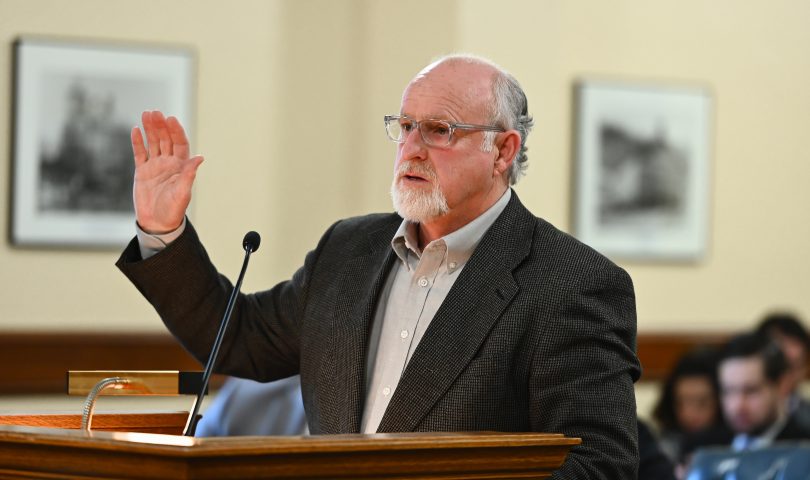MORGANTOWN — The state Senate is making another go at revamping how and for how long workers can receive unemployment benefits.
The Government Organization Committee on Tuesday gave its thumbs-up to SB 59, which WorkForce West Virginia helped draft. It blends two bills — SB 59 and SB 82, which both passed the Senate last year and died in the House.
Current law allows workers to collect unemployment benefits for a maximum of 26 weeks. SB 59 reduces the duration and indexes it to the state unemployment rate.
The bill sets a maximum duration of 12 weeks when the state unemployment rate for the prior quarter is below 5.5%, which is considered full employment, committee counsel explained. For each half-percent increase above 5.5%, an extra week is added until the rate reaches 9%. Then benefits are capped at 20 weeks.
Current law requires a person to seek work but sets no criteria for what that means, counsel said. The bill requires an applicant to actively seek work with at least four work searches — defined in the bill — per week.
WorkForce West Virginia Commissioner Scott Adkins explained the reasoning behind that. Current code lacks search criteria and verification methods.
“A lot of folks, I hate to say, beat the system,” he said. The bill provides incentives to return to work, he said.
One of those incentives is elimination of the penalty for taking a part-time job, he explained. The bill allows a worker who takes a part-time job to continue to receive benefits. If the wages are less than the weekly benefit, the worker can receive the benefit without reduction of the wages.
There were 55,000 job openings in November, Adkins said, and there are now more than 4,000 open state jobs. Allowing for full part-time pay plus benefits helps the workers and the employers.
Workers must provide proof of work searches. WorkForce will share open positions submitted to or posted by the Division of Personnel and refer workers to suitable positions. Workers must apply for those suitable positions and risk having benefits withheld if they fail to appear for an interview.
Adkins said “suitable work” means a job similar to the person’s current position. A nurse working fast food, a day-shift worker moving to graveyard, or a person who commutes 20 miles having to commute 100 would not be considered suitable work.
The bill also contains some other accountability provisions to ensure applicants are who they say they are. WorkForce will check employment roles against death records and review suspicious claims — multiple claims from the same IP address or mailing address, claims from foreign addresses, and multiple claims linked to the same bank account, for example.
Answering a question, Adkins noted that there are 13,185 people getting benefits at the moment, so it’s impossible to verify everything.
The bill now heads to the full Senate.
TWEET David Beard @dbeardtdp
EMAIL dbeard@dominionpost.com




